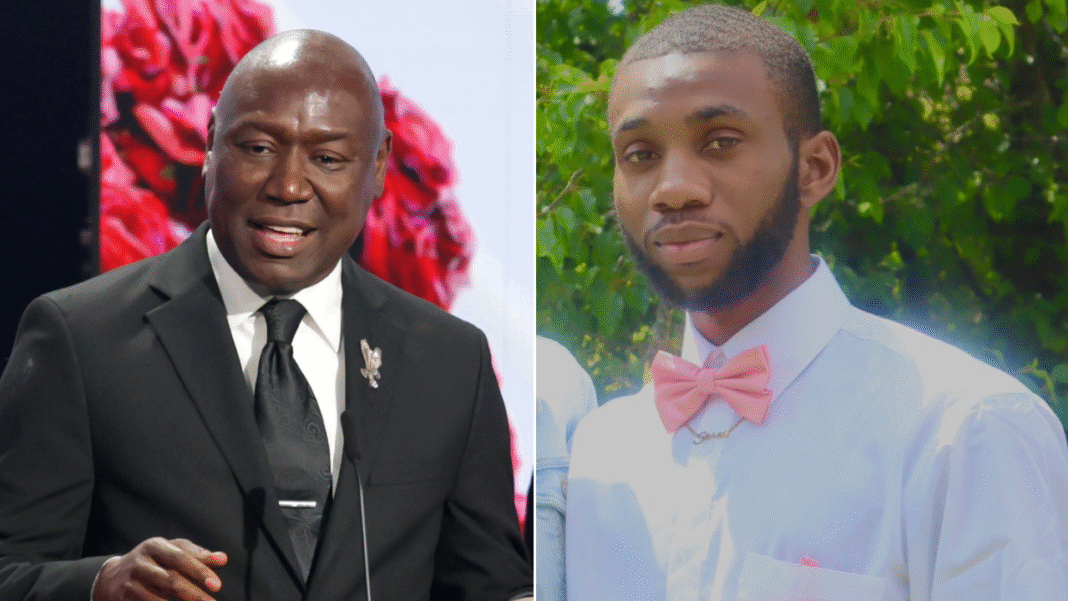Seeking Justice for De’Martravion “Trey” Reed: A Call for Answers
Civil rights attorney Ben Crump has stepped into the spotlight once again, this time on behalf of the family of De’Martravion “Trey” Reed, a 21-year-old student found hanged at Delta State University. This tragic incident has raised significant questions and concerns, prompting a call for an independent investigation into the circumstances surrounding Reed’s death.
The Tragic Discovery
On September 15, 2025, the lifeless body of Trey Reed was discovered hanging from a tree near the university’s pickleball courts around 7:30 AM. He was pronounced dead an hour later. The news of Reed’s death quickly spread, igniting a flurry of speculation and concern across social media platforms. Many users began to express fears of foul play, particularly given the current climate around issues of race and justice in America.
The Role of Ben Crump
Ben Crump, known for his advocacy in high-profile civil rights cases, has been retained by Reed’s family to seek justice and answers. In a statement released on Tuesday evening, Crump affirmed the importance of a thorough investigation. He described Reed as “a young man full of promise and warmth, deeply loved and respected by all who knew him,” underscoring the emotional and communal weight of this loss.
Crump’s commitment to the case stems from his longstanding belief in the need for transparency and accountability in situations where there are questions about an individual’s death, especially among young Black men. “His family and the campus community deserve a full, independent investigation to uncover the truth about what happened,” Crump emphasized, signaling that the family is unwilling to accept vague conclusions regarding Reed’s death.
Coroner’s Findings Raise More Questions
Adding another layer of complexity to the situation, a preliminary examination conducted by the Bolivar County coroner suggested there was no evidence of foul play in Reed’s death. The coroner’s statement indicated that Reed did not exhibit any signs of injury consistent with an assault, citing the absence of lacerations, contusions, or broken bones.
Despite this assertion, many community members and advocates remain unconvinced and are asserting their right to question the coroner’s findings. The concerns are fueled not only by the nature of the incident but also by a broader dialogue on racial violence and systemic disparities in the treatment of such cases.
A Community in Mourning
The implications of Reed’s death extend far beyond his immediate family. Following the incident, members of the Delta State University community have rallied around calls for justice, echoing Crump’s sentiments that uncertainty cannot be tolerated. The collective grief felt by friends, faculty, and fellow students highlights a community grappling with shock and a desperate need for clarity.
Concerns regarding racial undertones in Reed’s death have been amplified due to other recent incidents in the country, further complicating an already sensitive atmosphere. Critics argue that the lack of definitive answers surrounding high-profile fatalities of young Black men raises ongoing alarms about potential systemic inequities in investigation responses.
Calls for Transparency
In his concluding remarks, Ben Crump asserted that the family of Trey Reed, along with their allies, would not acquiesce to vague conclusions. He stated, “We cannot accept vague conclusions when so many questions remain.” This sentiment resonates deeply with many who advocate for greater scrutiny and more robust investigations into cases that may involve racial dynamics or potential foul play.
The involvement of Crump’s team underscores a critical moment for the family and the campus community. Their pursuit of answers reveals a commitment to holding authorities accountable and demands that the circumstances surrounding Reed’s passing be revisited with the thoroughness they deserve.
As this case unfolds, it stands as a poignant reminder of the complexities surrounding justice, race, and accountability in the United States, evoking a collective hope for resolution and understanding amidst profound sorrow.



